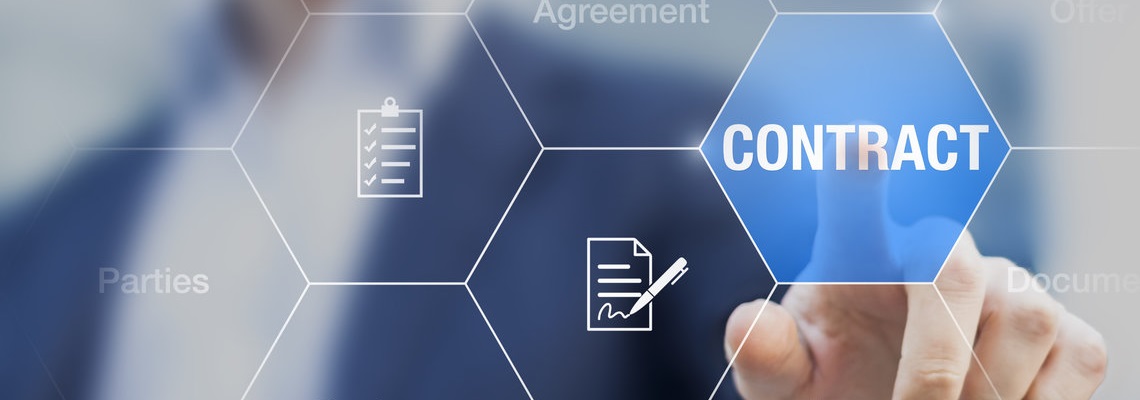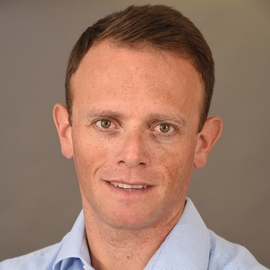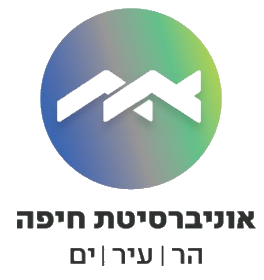
{tab About Us}
The Law, Technology & Cyber Legal Clinic at University of Haifa Faculty of Law focuses on the legal challenges that emerge in the digital ecosystem.
The digital era creates new opportunities to enhance social and economic welfare. At the same time, however, information technology may raise new challenges concerning free speech, privacy, cyber security, consumer protection, intellectual property and law enforcement. The Law, Technology & Cyber Legal Clinic addresses these policy challenges from a public interest of perspective, by initiating policy papers, drafting bills, providing initial counseling to entrepreneurs and nonprofit organizations, and engaging in public policy debates pertaining to IT policy,
Clinic Staff
{tab Projects}
Legal position papers written by the Law and Technology Clinic on the following subjects:
- The ability to prohibit taking photos at events.
2. Giving credit to the author in photos – when and how.
3. Changing an architectural work.
4. Changing logo
5. Copyright protection on the tables and graphs – is there any?
6. Liability for indirect infringement or contributing infringement by ginving links to a website of a funded project
7. Is there copyright in a folk music?
*** These papers were written following a request to the clinic and stated therein as at September 2015 ***
*** These position papers do not replace a concrete legal advice ****
The position papers were prepared by students in the clinic : Hod Elfassy, Matan Carmel, Netanel Nehemya, Inbar Siso-Lefeber, Maayan Pogozelits, Alexei Podgor and Hadar Shaked-Itskovitch.
iLINC – The European Network of Law Incubators
The Law and Technology Clinic is a partner in iLINC – The European Network of Law Incubators. The main goal of the project, which is funded by the European Commission (Seventh Framework Programme of the EU), is that legal clinics will give legal advice to ICT Entrepreneurs and Start-ups, in their early stage, when they can’t afford legal counsel. The project is conducted by Queen Mary University of London, University of Amsterdam, KU Leuven and the Hans Bredow Institute for Media Research.
Digital Access to Hebrew Resources: National Library Digitization Process
The National Library is preparing for the digital age and for making the cultural treasures in its custody accessible to the public via the Internet. The Library holds a rich collection of books, newspapers, manuscripts and media files which have been digitized and opened to the public, thereby raising a host of legal questions on issues that are at the heart of legal and public debate in Israel and abroad. These questions concern the future of books and the digital library, the treatment of orphan works, the duration of protection of various works, accessibility of information in the digital era, and the development of new general and commercial models.
The Law and Technology Clinic advises the National Library on legal issues that arise in the process of digitizing the library collection and providing access via the Internet. Legal research conducted in this framework will be accessible to the public and will help other libraries and archives in Israel make their collections accessible in a similar manner.
In May 2011 the project initiated an international conference on eBooks – A New Era of Law, Business and Society.
Access to Knowledge in Higher Education Project
In recent years, copyright laws have formed one of the major barriers to accessing educational materials for teaching and research in higher education institutions. This is due, in part, to a lack of legal certainty regarding the scope of permissible use. Uncertainty has affected the quality of teaching and research and the ability of institutions of higher education to serve their public mission.
The aim of the project is to remove barriers to the use of works used for teaching in higher education by formulating rules of fair use tailored to the special needs and public goals of these institutions in promoting research and teaching. The project is being conducted in collaboration with the College of Management Academic Studies School of Law.
As part of this initiative a forum comprising representatives of the majority of the institutions of higher education in Israel has been set up; the forum has formulated a Code of Fair Use Best Practices for use in higher education.
Creative Commons (CC) Israel Project
CC is a world nonprofit organization that offers free licenses (including “partial rights reserved”) as an alternative to the traditional copyright legal regime (of “all rights reserved”).
In this project the Law and Technology Clinic engages in educational and public activities to raise awareness of the importance of access to knowledge. Activities include lectures to users, creative communities and the public at large, conducting studies pertaining to open access to data, scientific publications, and the scope of “commercial use” in non-commercial licenses. The Clinic is also responsible for updating the licenses and maintaining the Israeli CC website (creativecommons.org.il) which includes posts, articles and continuous updates about the various activities and news.
Additional Projects
Addressing IP Trolls: Examining the behavior of trolls in the field of intellectual property, and exploring different regulatory strategies for addressing this matter in Israel.
Exploring Cyber-Terrorism: Studying the legal challenges involved in protection against cyber terrorism, and the implications for privacy, free speech and due process; proposing solutions to these problems in Israel, inter alia in the light of international law and legislation in other countries.
Mapping Online Copyright Enforcement Practices: Examining online practices of copyright enforcement by online service providers, and the legal implications for civil rights and due process.
Position papers and responses to legislative amendments formulated by the Clinic
The Clinic’s response to the memorandum on the Copyright (Amendment No. …) Technological Protective Measures and Electronic Information Concerning Copyright Privileges, 2012 [in Hebrew]
The Clinic’s response to calls for position papers of the Israeli Patent Office on the Patentability of Software [in Hebrew]
A Lecture on Copyright, Creative Commons and Open Data [in Hebrew].
Fair Use Week 2017
Fair Use Week – February 20-24, 2017.
This is the third time in a row that the Law and Technology Clinic joins the celebrations.
This year the clinic decided to try and raise awareness of the fair use clause through tribute to movies and TV series. In addition – especially for this event – a video was made with an original song that was composed by Hod Balas.
{gallery}lawTech{/gallery}
Fair Use Week 2016
Fair Use Week – February 22-26, 2016.
This year, 2016, is the third time that Fair Use week is celebrated in the U.S. and the second year for the Law and Technology Clinic.
This year the Law and Technology Clinic decided to approach various creators from different fields with a questionnaire in order to test the awareness of copyright and fair use.
You are welcome to follow the blog of the Law and Technology Clinic .
You are welcome to follow the global site updates.
Fair Use Week 2015
Fair Use Week – February 23-27, 2015.
This year, 2015, is the second time that Fair Use week is celebrated in the U.S. and the first year for the Law and Technology Clinic.
Last year the Fair Use Week was initiated by Harvard Libraries together with Office for Scholarly Communication. This year the week is celebrated by about 15 Universities, Colleges and organizations such as EFF, Public Knowledge and ARL.
What is Fair Use?
Copyright law creates a system of checks and balances that balance between the public domain and the granting of incentive for authors to create. Therefore, the new Israeli Copyright Act of 2007 includes permitted uses. Fair Use is one of them.
The new Israeli Copyright Act of 2007 replaced the old Copyright Act of 1911. The fair dealing clause was replaced by a Fair Use clause which is very much similar to the U.S. Fair Use clause:
“19. Fair Use
(a) Fair use of a work is permitted for purposes such as: private study, research, criticism, review,
journalistic reporting, quotation, instruction and examination by an educational institution.
(b) In determining whether a use made of a work is fair within the meaning of this section the factors to be
considered shall include, inter alia, all of the following:
(1) The purpose and character of the use;
(2) The character of the work used;
(3) The scope of the use, quantitatively and qualitatively, in relation to the work as a whole;
(4) The impact of the use on the value of the work and its potential market.
(c) The Minister may make regulations prescribing conditions under which a use shall be deemed a fair
use”
There is another judicial criteria that has to be met before the use can be considered “fair” – attribution to the author.
However, the fair use clause is unclear and often impossible to say in advance whether a particular use should be considered fair or not. To address this uncertainty and its chilling effect on educational use, for example, we formed a coalition of higher education institutions in Israel and negotiated a shared understanding of fair use Long the partnering institutions.
The output was a Code of Fair Use Best Practices for the use of copyrighted materials in Higher Education Institutions. This initiative is the outcome of a collaboration between the Law and Technology Clinic of the University of Haifa, the Faculty of Law, and the IP Clinic of the College of Management Academic Studies School of Law.
On Fair Use Week the Law and Technology Clinic will devote this week to raise awareness of the existence of the fair use clause and its importance. During the week we will publish posts related to the subject in our blog. Some of them are written by leading lawyers and scholars in the field. We would like to thank them for that.
Posts that were published on Fair Use Week 2015:
23 Feb. – Prof. Michael Birnhack (in Hebrew) Fair Use and the Added Judicial Criteria
24 Feb. – Adv. Tamir Afori (in English) Fair Use and Two Drafting Comments
25 Feb. – Dr. Miriam Bitton (in Hebrew) Fair Use in Court decisions – Recommendations for Reform
26 Feb. – Prof. Niva Elkin Koren (in Hebrew) Fair Use – Is It a Right?
27 Feb. – Adv. Jonathan Klinger (in Hebrew) Fair Use – The Power to Change
Summary of the week around the world:
Roundup from Day 1 of Fair Use Week
Roundup from Day 2 of Fair Use Week
Roundup from Day 3 of Fair Use Week
Roundup from Day 4 of Fair Use Week
Public Domain Day
Paying for works that their copyright expired ? Not a shame?
Every 1st of January, the Law and Technology Clinic celebrates the Public Domain Day. 70 years after the death of the authors their works are released to the Public Domain in Israel. Please join us to celebrate the event.
Links about Public Domain Day [in Hebrew]:
https://www.youtube.com/watch?v=GzlCeXU443s
https://www.youtube.com/watch?v=CJxnSPp4p5s
https://he.wikipedia.org/wiki/%D7%99%D7%95%D7%9D_%D7%A0%D7%97%D7%9C%D7%AA_%D7%94%D7%9B%D7%9C%D7%9C
http://www.zemereshet.co.il/news_item.asp?id=171
http://benyehuda.org/blog/archives/7811
http://www.geektime.co.il/public-domain-day-celabration/
http://www.wikiwand.com/he/%D7%99%D7%95%D7%9D_%D7%A0%D7%97%D7%9C%D7%AA_%D7%94%D7%9B%D7%9C%D7%9C
Public domain – walls of creation



